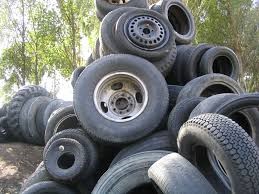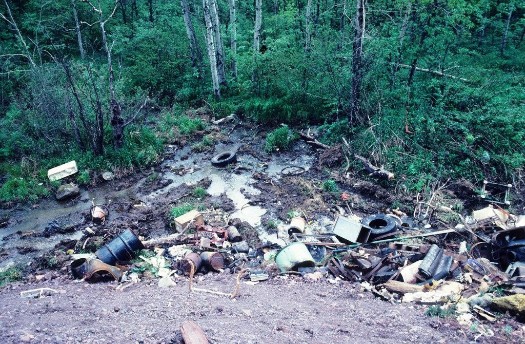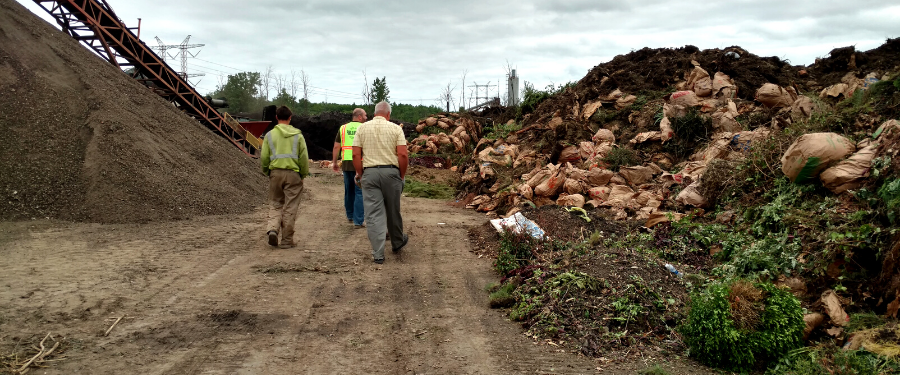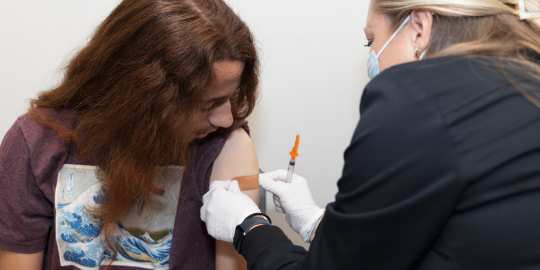Solid & Hazardous Waste

Lorain County Public Health (LCPH) inspects the solid waste facilities in Lorain County. These include the municipal solid waste landfill Lorain County II Landfill on Oberlin-Elyria Rd in New Russia Township, closed landfills, construction and demolition debris landfills, composting facilities and even infectious waste generators. LCPH inspects licensed solid waste facilities as required by the Ohio Environmental Protection Agency (EPA) under Chapters 3734 and 3714 of the Ohio Revised Code. LCPH also responds to complaints related to solid waste, such as landfill odors and scrap tire piles.
Municipal solid waste landfills
LCPH inspects Lorain County II Landfill on Oberlin-Elyria Rd in New Russia Township, the municipal solid waste landfill each quarter and as needed to address any complaints. During a municipal solid waste landfill inspection, LCPH checks the entire site. We make sure erosions are repaired, gas wells function correctly, and exposed waste gets covered in a timely manner. We review the landfill’s daily logs to make sure that the landfill does not take in more waste than what’s allowed.
Construction and Demolition Debris (C&DD) landfills
LCPH inspects C&DD landfills quarterly as well. These facilities may only accept waste such as brick, concrete, and drywall. Lorain County has two active C&DD landfills.
Composting facilities
LCPH inspects composting facilities once per year. Class IV composting facilities accept yard waste such as leaves, trees, and shrubs. Composting facilities save waste from entering a municipal solid waste landfill. These landfills often turn the organic plant matter into mulch and other landscaping products. Lorain County has about 20 composting facilities.
Infectious waste generators
Infectious waste generators include any location that produces trash that could be contaminated with disease. These include hospitals and other medical facilities, as well as tattoo parlors. LCPH inspects them on an as-needed basis.

Household Hazardous Waste (HHW)
The Environmental Protection Agency (EPA) defines some household products as “household hazardous waste.” These items can catch fire, react, or explode under certain circumstances, or they are corrosive or toxic. Examples of HHW include paints, cleaners, oils, batteries, and pesticides.
Stay safe when using HHW:
- Use and store the product according to its label to prevent any accidents at home
- Read product labels for directions on rid of it. If HHW gets thrown away in the trash, it may explode, ignite, leak, mix with other chemicals, or pose other hazards on the way to a landfill
- Keep HHWs their original containers and never remove labels. If the original container is corroding or breaking down, call your local fire department for instructions.
- Keep HHWs completely separate from other products. Mixed products might react, ignite, or explode, and contaminated HHW might become unrecyclable.
- Leftover chemicals on the empty containers of HHW can still be dangerous - handle them with care.
If you have any questions about how to dispose of solid waste, contact LCPH at 440-322-6367.
The Lorain County Collection Center accepts HHW, e-scrap, fluorescent bulbs and ballast, scrap tires, books and more. Visit their website for hours and a list of accepted waste.


